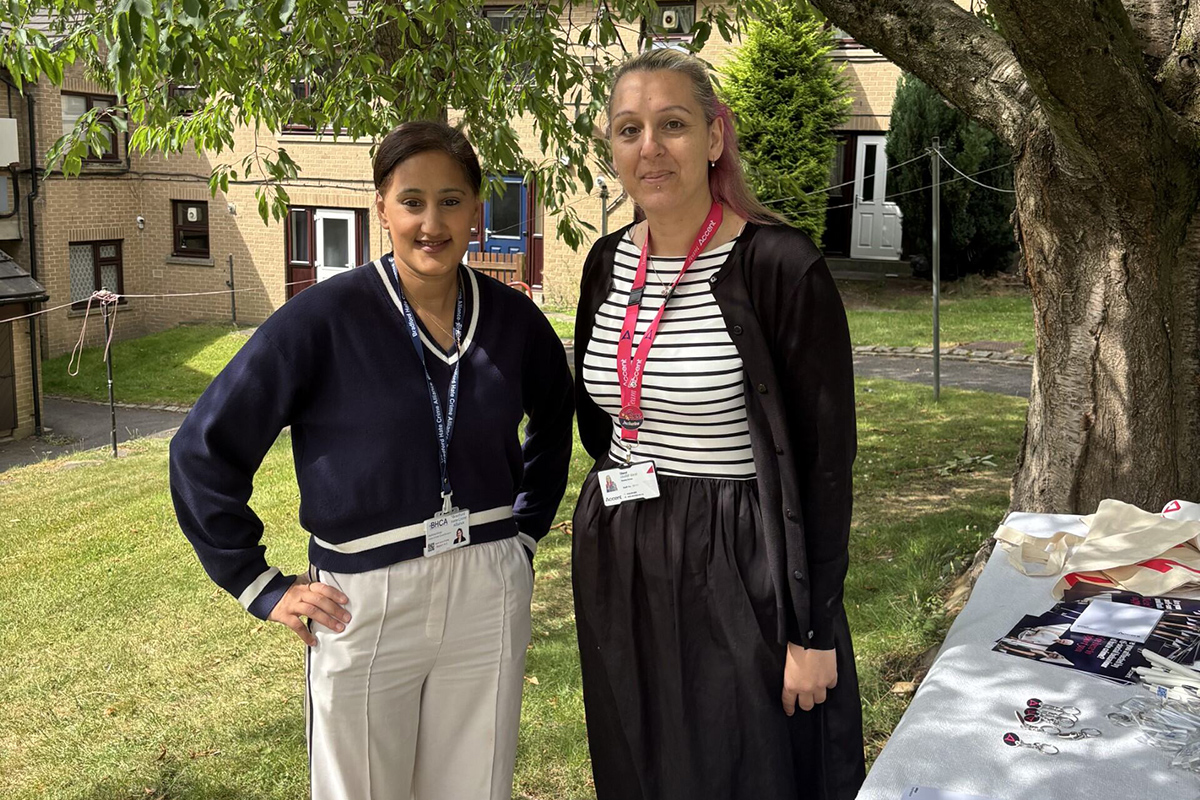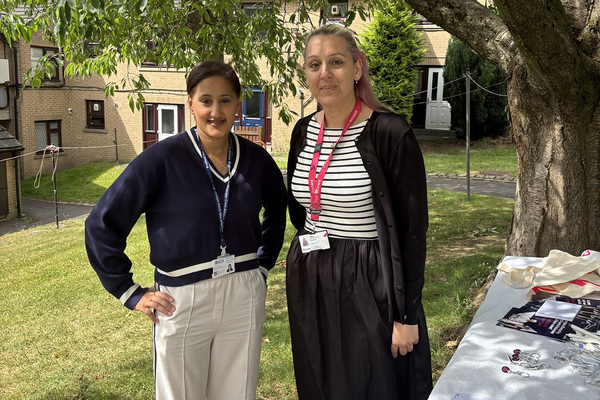You are viewing 1 of your 1 free articles
‘Listen, understand and act without judgement’: advice from a housing officer on tackling anti-social behaviour
Cheryl Gledhill-Kucuk is a housing partner at housing association Accent, and last year she won an internal ‘Unsung Hero’ award for her work on anti-social behaviour. She shares her experience and advice

Key Learnings
- Anti-social behaviour (ASB) presents itself in many forms, including persistent noise, drug use, harassment, intimidation and hate crime
- Early intervention and support are crucial to prevent ASB cases from spiralling
- Close collaboration with other agencies – including the police, social services and mental health teams – is vital to making sure people get the right support at the right time
- A landlord’s ASB processes should be clear and accessible, allowing residents to report issues quickly and easily
- Targeted outreach work is important to support those residents who might struggle to approach the landlord first
Every day is different when you work as a housing partner, especially when you’re dealing with anti-social behaviour.
ASB presents itself in many forms, including persistent noise, drug use, harassment, intimidation and hate crime.
A big part of my role is focused on these problems, and I see first-hand the impact they have on people’s lives – often quietly and behind closed doors.
A case that has stayed with me involved a woman who was experiencing both drug misuse and domestic abuse. The team and I were trying to support the woman to flee a dangerous situation but, sadly, the situation escalated. It ended with the woman stabbing her ex-partner.
This was a stark reminder of how quickly things can spiral, and how crucial it is to ensure early intervention and support.
“ASB takes a huge emotional toll, not just on the individuals involved, but on the wider community”
I have dealt with other situations which involved vulnerable customers being targeted over their disabilities or their sexual orientation. Some cases I have handled involved individuals with complex needs who were unintentionally causing distress to their neighbours.
ASB takes a huge emotional toll, not just on the individuals involved, but on the wider community.
A key part of my role is working closely with other agencies including the police, social services, mental health teams, domestic abuse services and local community organisations. Together, we can offer a joined-up approach that protects our customers, prevents escalation, and ensures that people get the right support at the right time.
In one block of flats I’m currently working at, we’ve turned the entire building around. It’s been transformed from a place where nobody wanted to live due to serious ASB issues, including substance abuse and fly-tipping, into a lovely building (see case study below).
Improving this building involved changing the housing mix. Previously, a lot of people with substance abuse issues and alcohol dependency were being housed there. Now, we’re housing people with support needs more evenly across different housing schemes.
We also began recharging tenants for fly-tipping in the corridors. This came as a shock at first, but we’ve been able to re-carpet the entire building since people stopped dumping rubbish, and it’s turned the building around. It is now a nice place to live.
Case study
The problem
I am working with two tenants, a man and a woman who live in separate flats in the same residential block. Both are alcohol-dependent and co-dependent on each other.
They fall out constantly in the communal spaces, which causes issues for everybody else in the building. We constantly have the police on site.
Other residents, including families with children, don’t want to go into the corridors when these residents are drinking because the situation can become quite volatile.
Getting reports of the ASB is also hard because residents don’t want to give their own names due to safety concerns.
The solution
I’ve turned an empty room that we had available in the building into an office and I now go there regularly to work. Having my presence on-site has helped hugely – residents pop into the office to chat and now that they feel comfortable with me, the ASB stuff comes up in conversation.
I’ve also visited some of our customers in the building one-to-one to discuss the situation. I also sent out a letter explaining our ASB procedure, which involves logging ASB on the Noise App. We’ve had a really good outcome of people using this app.
Although we’re at the point where we would usually look at a possession order, we’ve worked with the safeguarding police, the ASB police and substance misuse agencies, and instead we’re going to offer the woman another property in a totally different area.
She was reluctant at first, but I met with her, along with a support worker, and explained how moving could help her focus on her recovery and succeed. Now, she’s really happy with it.
We’re hoping that when she moves, it will break the tenants’ cycle of co-dependency and they can both start their recovery with the support they need.
At Accent, we want to make our ASB process clear, supportive and accessible. During ASB Awareness Week (30 June – 6 July), we made it a priority to highlight our policies and promote tools, like the Noise App, to help residents report issues quickly and easily.
We are also doing targeted outreach work to reach more vulnerable customers who might struggle to approach us or might not know how and where to start.
To work in housing, particularly around ASB, you need to have a real passion for people. You need to be able to listen, understand and act without judgement.
I approach my work with empathy, persistence and a drive to help people rebuild their lives. I learned this early in my housing career while working with people who were sleeping rough – many of them struggling with drug addiction – and later in roles supporting survivors of domestic abuse and individuals being discharged from forensic mental health wards.
Over the years I have supported a wide range of tenants, from general needs households to families facing homelessness.
Some days are difficult and the challenges are real, but when you help someone feel safe in their home again, it makes every part of the job worthwhile.
Subscribe to Inside Housing Management and sign up to the newsletter

Inside Housing Management is the go-to source for learning, information and ideas for housing managers.
Subscribe here to read the articles.
Already have an account? Click here to manage your newsletters.
Latest stories



